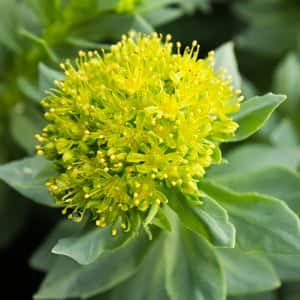
The earliest humans used plants for medicine as well as for food. Whenever they found something that seemed to enhance sexual performance, they paid attention. By medieval times, people were making huge amounts of money trading spices around the globe.
Plants as Medicine:
People wanted to make their food taste good, of course. But the perceived medicinal benefits were also extremely important.
According to author Jack Turner,
“In the medieval mind spices and medicine were effectively one and the same. Not all drugs were spices, but all spices were drugs.”
Spices for Sexual Performance:
An 11th century monk named Constantine wrote that ginger, cinnamon, galangal (a root related to ginger) and pepper could be used to treat impotence. Indeed, the search for medicines to reverse sexual dysfunction-or just enhance the experience-has been going on ever since.
Plants That May Boost Sexual Performance:
Native peoples around the world have identified certain plants that seem to improve sexual performance, somewhat as medications like Viagra or Cialis do. They believe other plants boost libido.
Maca for Sexual Performance:
In the highlands of Peru, the favored plant is maca, Lepidium meyenii. It looks like a turnip and is considered a staple food. Like turnips, it is in the family of cruciferous vegetables that includes cabbage and broccoli. But maca also has a reputation for increasing stamina, strength and sexual desire.
Few scientists have investigated maca, but one small study found that it could improve sexual function in postmenopausal women (Brooks et al, Menopause, Nov-Dec. 2008). Another pilot study found that maca helped overcome the sexual dysfunction associated with SSRI antidepressants such as fluoxetine or sertraline (Dording et al, CNS Neuroscience & Therapeutics, Fall 2008). These researchers also noted that maca may have a beneficial effect on libido.
Ashwagandha as Medicine:
In India, a country that uses hundreds of medicinal herbs, one of the most popular is ashwagandha (Withania somnifera). Ayurvedic medicine practitioners recommend the roots to ease pain and inflammation, promote sleep and calm anxiety, among other purposes. It also has a reputation for restoring sexual vigor (Malviya et al, Acta Poloniae Pharmaceutica, Jan-Feb. 2011).
Rhodiola for Libido:
People in Scandinavia and Siberia have used the plant Rhodiola rosea for generations. It is renowned as an energy booster and libido enhancer.
One study found substantial improvement for men complaining of premature ejaculation (Cai et al, Experimental and Therapeutic Medicine, Oct. 2016). The researchers report that almost all of the 91 men in the study took the herbal treatment for the full three months, possibly because it did not have adverse effects and it improved their quality of life.
Why You Should See a Doctor:
We caution that anyone experiencing sexual difficulties should check with a physician, even though it might seem embarrassing. That’s because conditions such as erectile dysfunction or low libido may be caused by underlying medical conditions such as diabetes, heart disease or thyroid problems.
Herbs can also interact with prescription drugs. That’s why it is important to consult a health professional before experimenting with combinations of medications and herbal extracts. Not all prescribers are familiar with these herbs, but they should be willing to look up a medicinal plant you’d like to try.
You can learn more about this intriguing topic by reading the book Hot Plants: Nature’s Proven Sex Boosters for Men and Women by Chris Kilham, published in 2004 by St. Martin’s Griffin.

